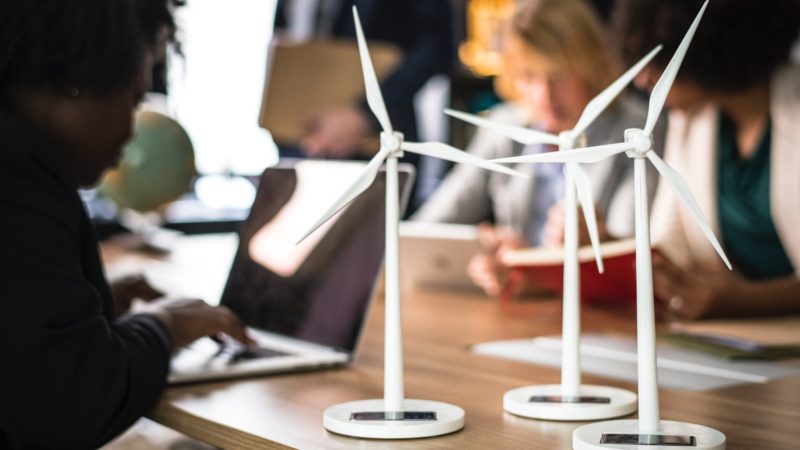
With the words ‘build back greener’, the government has signalled an intention to put sustainability at the heart of its Covid-19 recovery plans. Unfortunately for the Prime Minister, saying and doing are two very different things. As we look beyond Covid, the looming climate catastrophe is the greatest threat to our existence. And as the committee on climate change (CCC) recently warned, the UK is not doing enough to avert it.
Every death and economic misery sparked by the coronavirus pandemic is of the utmost tragedy. But the economic realignment we now face also offers opportunity for reset. Now is the time to be bold, putting the climate central to economic thinking. So far, the government has announced a £2bn green-homes grant scheme, a £1bn public sector decarbonisation scheme and £350m to cut emissions in heavy industry, amongst other pledges. Whilst welcome, it’s nowhere near enough. A green recovery this is not.
We need a true green new deal that places sufficient investment in decarbonising home heating and transport, puts forward comprehensive, credible strategies and investment in renewable energy, including hydrogen, and offers real investment in green jobs. We need action now.
A green new deal is not new thinking. Most of us know of it thanks to the tireless campaigning of US representative Alexandria Ocasio-Cortez. In the UK the movement hit the mainstream last year, with Labour’s campaign for a green new deal. But activity stretches back further. Advocates in the USA have championed a deal since the 1970s, and in 2009 the UN department for economic and social affairs set out its own global green new deal, to reduce emissions without sacrificing development. Why now? Because now, we can.
First, we must sufficiently invest in decarbonising home heating and transport. The heating of homes is the largest cause of carbon emissions in the UK residential sector – making up one fifth of emissions in 2019. Tackling this will be key to reaching net zero, and avoiding climate disaster. In the House of Commons on Tuesday, minister Kwasi Kwarteng said the recently announced green homes grant will upgrade 600,000 homes. To reach net zero by 2050, however, we need to be making 2,000 homes carbon neutral – a day.
It’s a similar story with transport, which accounted for 34% of UK emissions in 2019. Here, again, the difference is stark. The government hasn’t yet even published its transport decarbonisation plan.
Alongside this, real strategies and investment to boost renewable energy production are paramount. In June, the UK ended a record-breaking 67 days, 22 hours and 55 minutes without using coal. During lockdown, renewable energy usage has soared, showing what’s possible. But moving to energy production from solar, wind, biomethane and hydrogen doesn’t just happen by magic. Take hydrogen, an emerging energy source with great potential – this month the EU published its hydrogen strategy, with billions of euros of investment to boot. We should be there too, exploiting this opportunity to enter nascent supply chains and build future exporting capacity.
Finally, we need mass creation of well-paid, good quality green jobs. Covid-19 has been disastrous for the labour market, laying bare its lack of resilience. If government support is withdrawn this autumn, and hopes of a workable vaccine dashed, we could see 20% unemployment. Many green economy jobs are shovel-ready. By investing in green stimulus we can achieve two goals in one: sustainability and jobs. We know what is at stake. We cannot feign ignorance. Both Covid-19 and climate catastrophe menace to pilfer all we hold dear. A true green new deal is what we need.




More from LabourList
‘SEND reforms are a crucial test of the opportunity mission’
Delivering in Government: your weekly round up of good news Labour stories
Labour place third in Gorton and Denton by-election as Greens gain seat